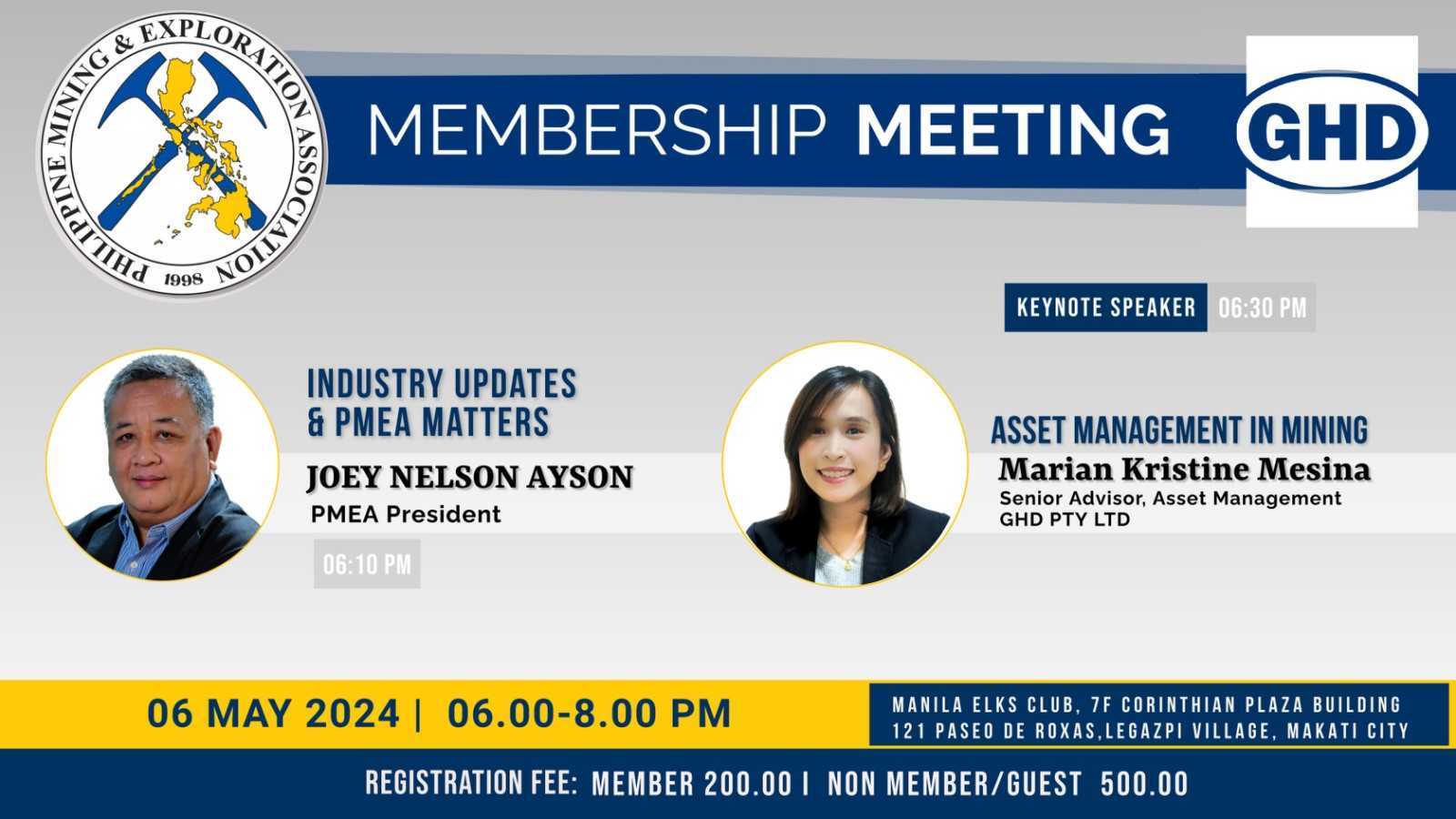
May 6, 2024 | MANILA ELKS CLUB, 7F CORINTHIAN PLAZA BUILDING, 121 PASEO DE ROXAS LEGAZPI VILLAGE MAKATI CITY
Please join us in the upcoming PMEA Membership Meeting on Monday, May 6, 2024 at the MANILA ELKS CLUB, 7F CORINTHIAN PLAZA BUILDING, 121 PASEO DE ROXAS LEGAZPI VILLAGE MAKATI CITY, 5:30 PM registration for 6:00 PM Start. Registrations Fees are as follows: Member : 200.00; Non-Member/ Guest : 500.00.
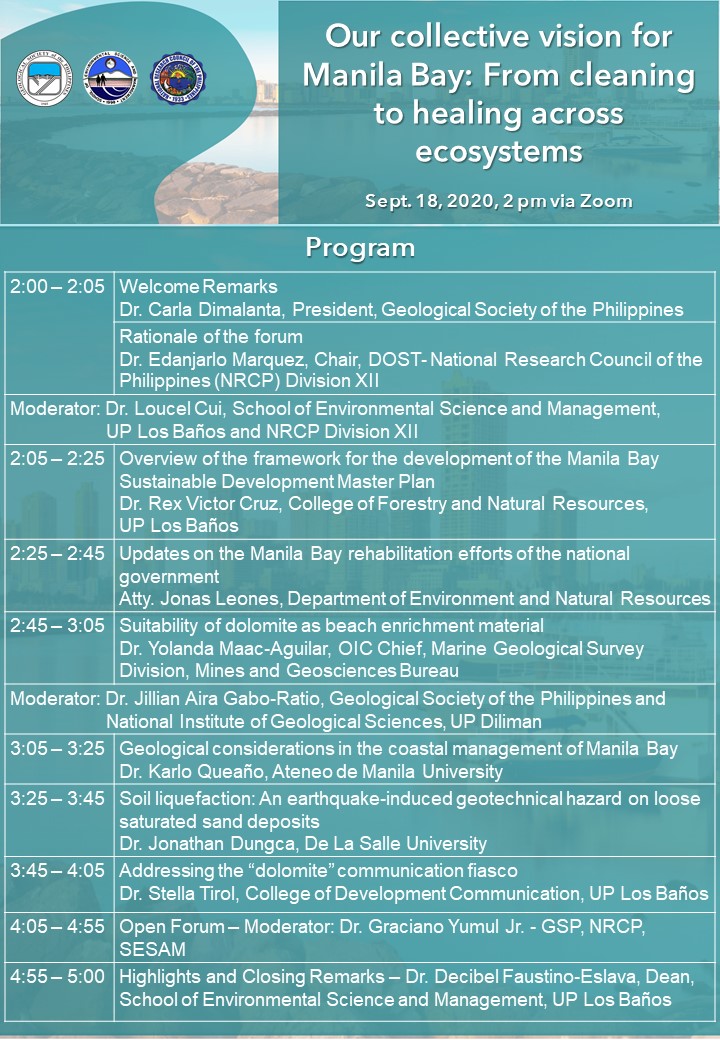
September 18, 2020 | Online
“Our collective vision for Manila Bay: From cleaning to healing across ecosystems”
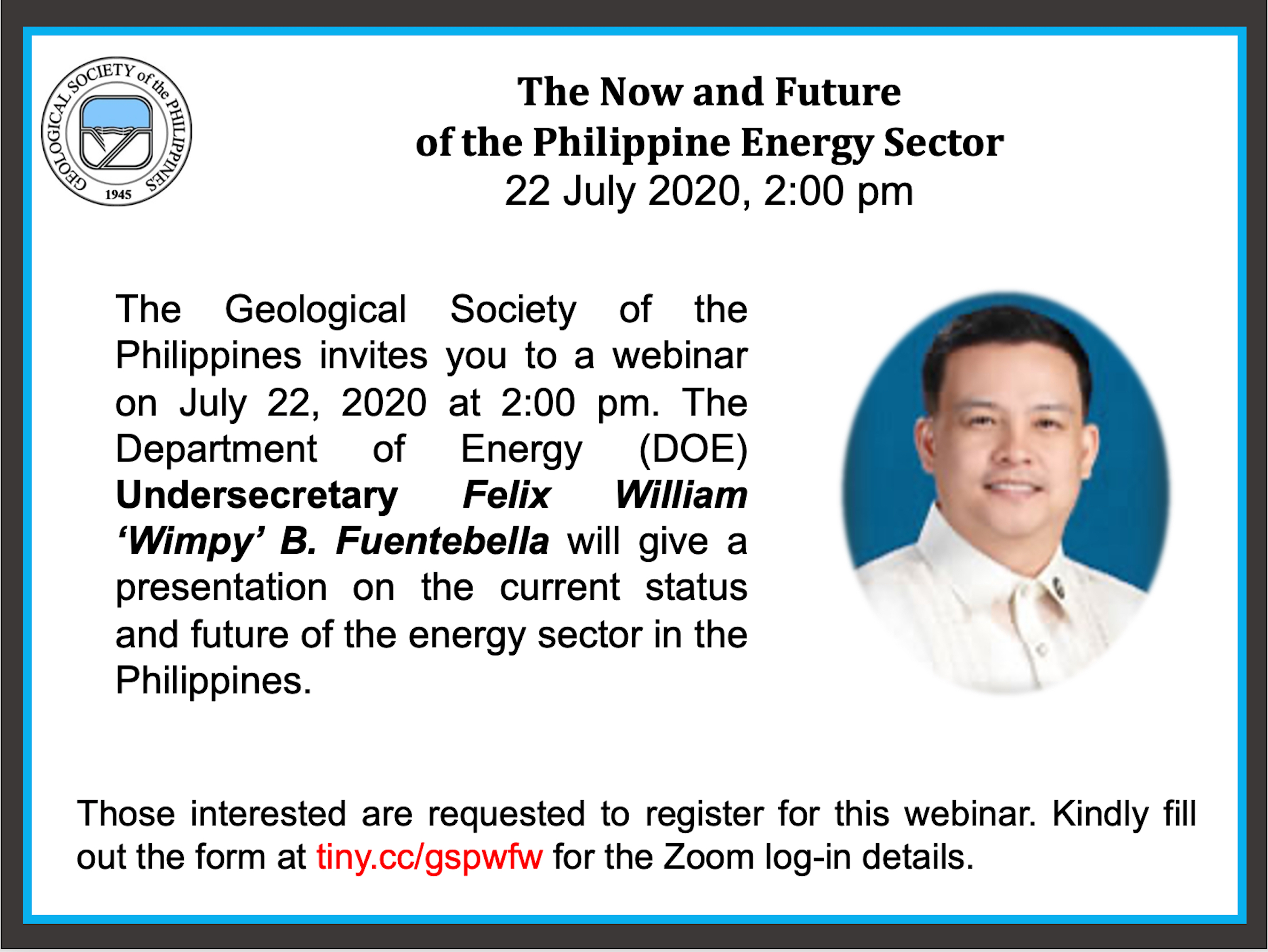
July 22, 2020 | Online
Webinar of Usec Wimpy Fuentebella (Department of Energy)
The GSP hosted its 7th webinar on July 22, 2020. Felix William ‘Wimpy’ B. Fuentebella, Spokesperson and Undersecretary of the Department of Energy (DOE) gave a talk on " The Now and Future of the Philippine Energy Sector."
In the wake of the COVID-19 pandemic, the Department of Energy (DOE) ensured that energy resources are available to the public and that the delivery of their services as ‘backliners’ did not stop. The priorities of DOE are: to ensure least cost power for consumers; provide accessible, affordable and secure power supply; and protect the environment while addressing climate change concerns.
Usec Fuentebella also reported that the domestic oil situation is stable for the coming months and years. However, DOE is still closely monitoring oil supply and promoting local sources of energy. He also emphasized the importance of the development of renewable energy and green energy to reduce reliance on non-renewable energy sources.
Here is the link to the video recording of the webinar: https://www.facebook.com/watch/?v=1192257021158625
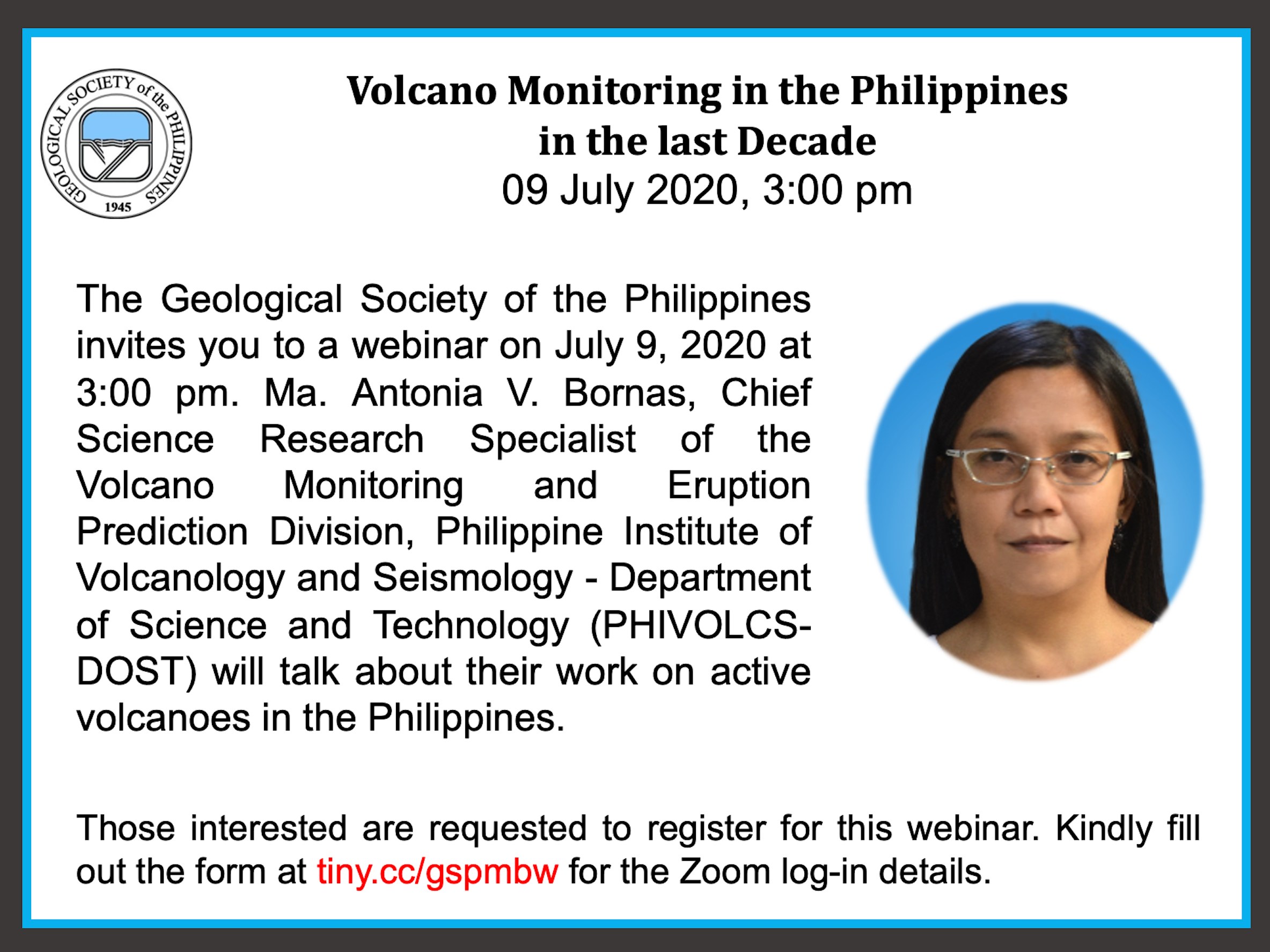
July 9, 2020 | Online
Webinar of Mariton Bornas (PHIVOLCS-DOST)
The GSP hosted its 6th webinar on July 9, 2020. Ma. Antonia V. Bornas, Chief Science Research Specialist of Volcano Monitoring and Eruption Prediction Division of PHIVOLCS-DOST gave a talk on "Volcano Monitoring in the Philippines in the last Decade."
Various monitoring systems operated by PHIVOLCS on the most active volcanoes in the country such as Mayon and Taal ensure that we are up to date with any signs of volcanic activity.
Below is the link to the video recording of the webinar:
https://www.facebook.com/watch/?v=324097058607950
This recording is strictly for academic purposes only. No portion of the presentation slides or the recording may be captured or reproduced without the explicit consent of PHIVOLCS. Thank you very much.
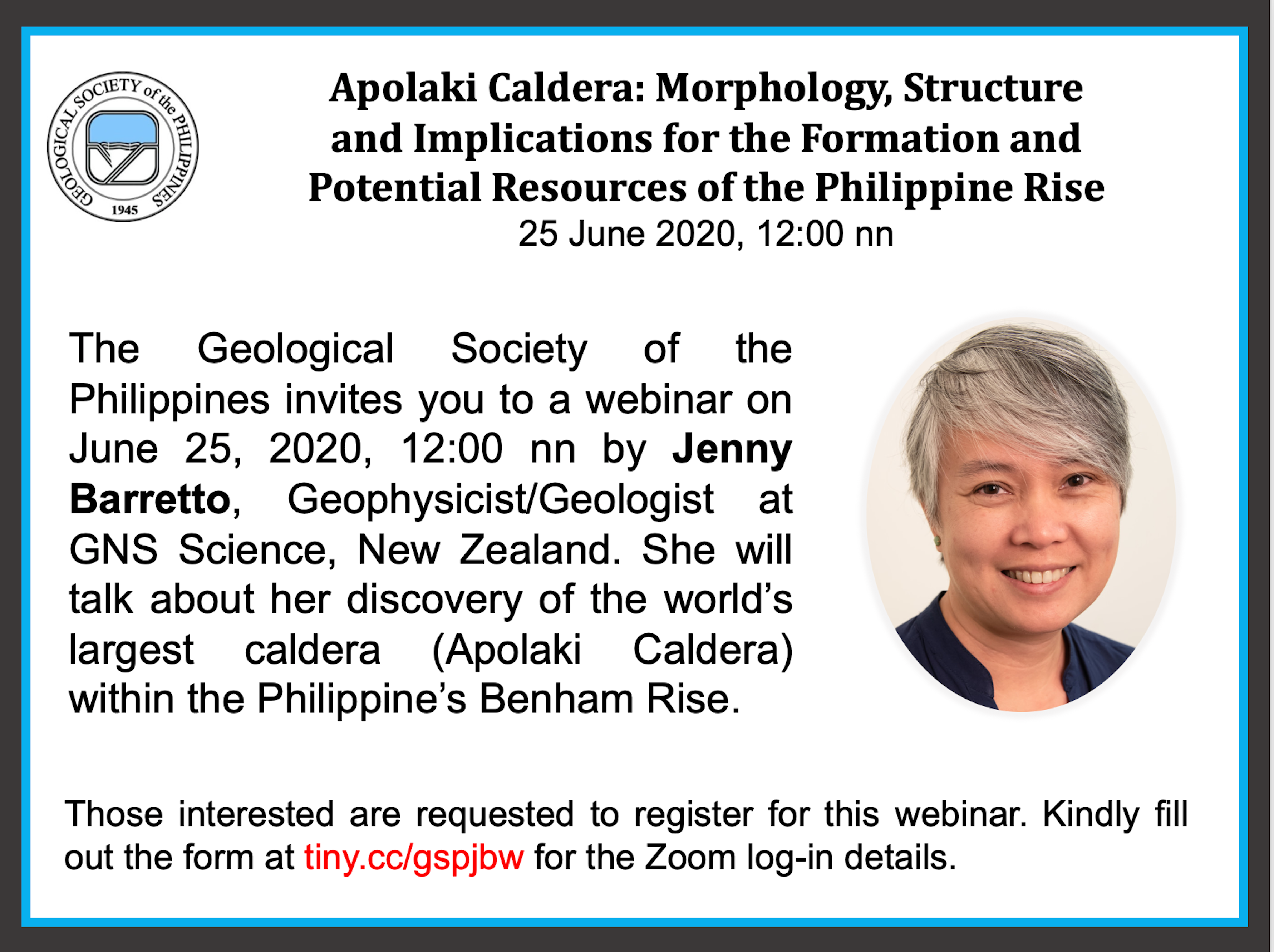
June 25, 2020 | Online
Webinar of Jenny Barretto (GNS Science, New Zealand)
The GSP hosted its 5th webinar on June 25, 2020. Jenny Barretto, a Geologist/Geophysicist from GNS Science, New Zealand gave a talk on "Apolaki Caldera: Morphology, Structure and Implications for the Formation and Potential Resources of the Philippine Rise."
Using NAMRIA’S multibeam bathymetry grid, seismic reflection, gravity and magnetic data as well as published data on rock compositions and ages, they discovered the volcanic caldera as the most prominent feature of the Benham Rise in the West Philippine Basin.
Below is the link to the video recording of the webinar: https://www.facebook.com/watch/?v=4179307505443076
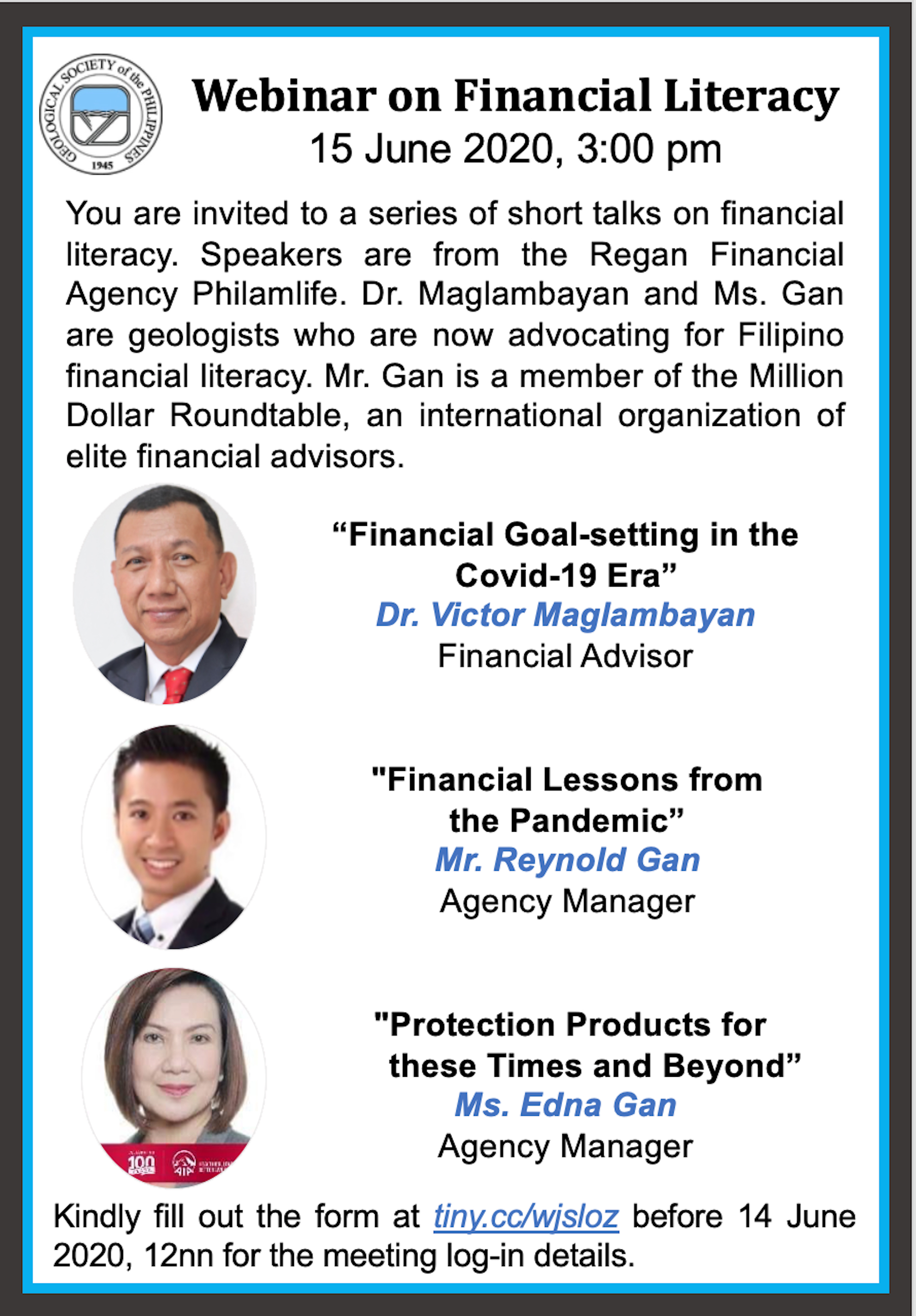
June 15, 2020 | Online
Financial Literacy Webinar (Regan Financial Agency Philamlife)
The GSP hosted a webinar on financial literacy on June 15, 2020 with speakers from the Regan Financial Agency Philamlife. Dr. Victor Maglambayan, a GSP Trustee, retired geologist and currently a Financial Advisor, talked about “Financial Goal-setting in the Covid-19 Era."
Mr. Reynold Gan, Agency Manager and member of the Million Dollar Roundtable, gave his talk on "Financial Lessons from the Pandemic." Lastly, Ms. Edna Gan, Agency Manager and also a geologist, discussed "Protection Products for these Times and Beyond.” Below is the link to the video recording: https://www.facebook.com/watch/?v=1467330233446688
If you are interested to know more about financial literacy and protection products, please contact Dr. Victor Maglambayan (09285064869), Katrina Abrasaldo (09178333347) and Genesis Cellona (09286569157).